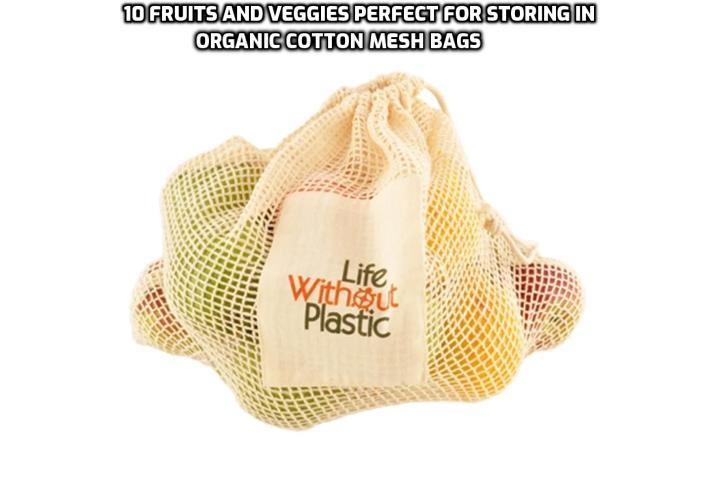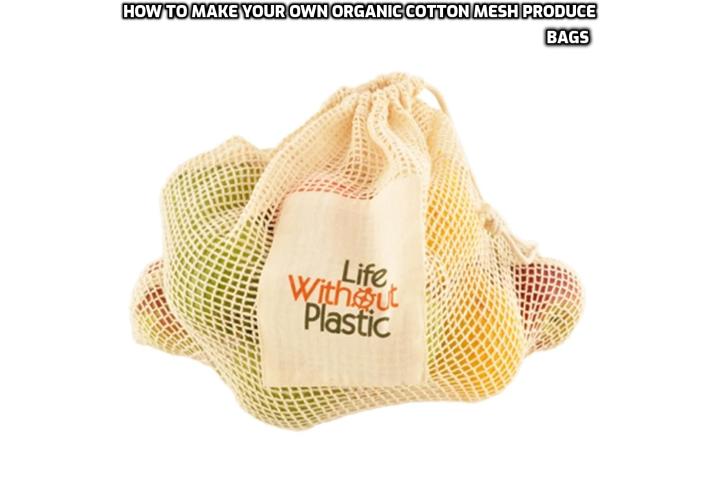
Click HERE to Discover Creative Ways to Adopting Earth-Friendly Habits in Your Daily Routine
Proper storage of fruits and vegetables is essential for maintaining freshness and prolonging shelf life. Organic cotton mesh bags offer a breathable and eco-friendly solution for storing produce, allowing air to circulate while reducing plastic waste.
Here are 10 fruits and veggies that are ideal for storage in organic cotton mesh bags, along with reasons for their suitability.
Apples
Apples are durable fruits that benefit from breathable storage to prevent moisture buildup and prolong freshness.
Citrus Fruits (Oranges, Lemons, Limes)
Citrus fruits have thick skins that provide natural protection, and storing them in mesh bags helps maintain airflow to prevent mold growth.
Potatoes
Potatoes require a dry, well-ventilated environment to prevent sprouting and spoilage, making mesh bags an ideal storage solution.
Onions
Onions need airflow to stay dry and avoid mold or sprouting, and mesh bags allow for optimal ventilation while keeping them organized.
Garlic
Like onions, garlic bulbs benefit from breathable storage to prevent moisture accumulation and prolong shelf life.
Leafy Greens (Lettuce, Spinach, Kale)
Leafy greens stay crisp longer when stored in breathable bags that allow excess moisture to escape, reducing wilting and spoilage.
Carrots
Carrots prefer cool, dry storage conditions with good airflow, and mesh bags help maintain the ideal environment while preventing condensation.
Celery
Celery stalks stay crunchy when stored in breathable bags that prevent moisture buildup, extending their shelf life.
Broccoli
Broccoli florets stay fresher longer in mesh bags that allow for airflow, reducing the risk of mold and maintaining optimal texture.
Bell Peppers
Bell peppers benefit from breathable storage to prevent condensation, which can lead to mold growth, and mesh bags provide the necessary ventilation.
Tips for Proper Storage
- Keep in a Cool, Dry Place: Store produce in a cool, dry area away from direct sunlight to prevent premature ripening and spoilage.
- Avoid Overcrowding: Allow space between fruits and vegetables to promote airflow and prevent bruising or molding.
- Check and Rotate Regularly: Regularly inspect stored produce for signs of spoilage and rotate items to ensure even airflow and usage.
- Wash Before Use: Wash fruits and vegetables thoroughly before consuming, even if stored in mesh bags, to remove any dirt or contaminants.
Watch this video – Plastic Free Kitchen Essentials! | 11 Eco Friendly Products to Reduce Plastic Waste
Conclusion
Using organic cotton mesh bags for storing fruits and vegetables offers numerous benefits, including prolonged freshness, reduced food waste, and eco-friendly packaging alternatives.
By choosing the right produce items and following proper storage practices, you can maximize the lifespan of your fruits and veggies while minimizing your environmental impact.
Let’s embrace sustainable choices in everyday life to create a healthier planet for future generations.
Click HERE to Discover Creative Ways to Adopting Earth-Friendly Habits in Your Daily Routine









